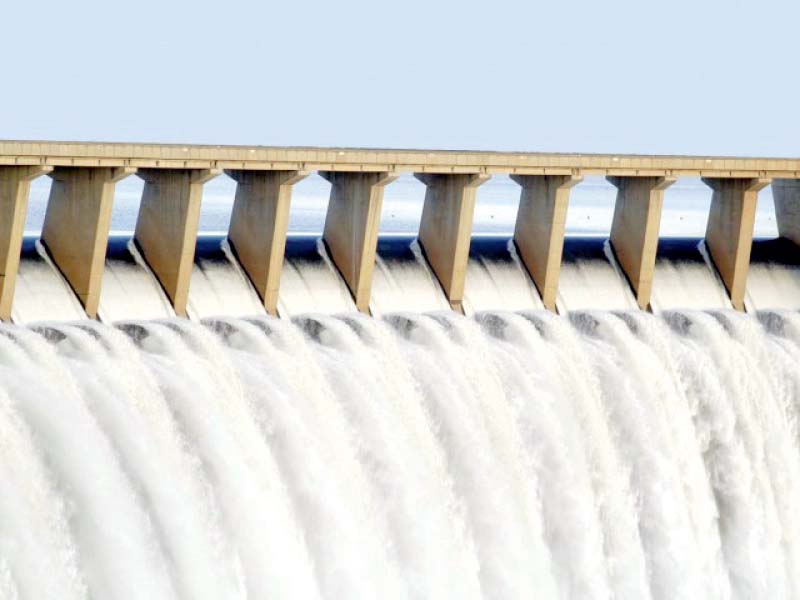
The Ministry of Water Resources (MoWR) has once again addressed the issue of water shortage caused in the Azad Jammu and Kashmir’s (AJK) capital after the completion of the 969 MW Neelum Jhelum Hydropower Project (NJHPP) in a recent meeting of the Cabinet Committee on Energy.
The NJHPP is a run-of-the-river hydropower project that started electricity generation in April 2018. It diverts the River Neelum through a system of tunnels out-falling into the River Jhelum.
A technical fault in the design of the project has led to a serious water shortage in Muzaffarabad city, in addition to creating environmental issues.
Sources told The Express Tribune that the then AJK prime minister had addressed the matter with the then Pakistani prime minister in a letter written on September 07, 2018.
The two prime ministers had met on October 09, 2018, to discuss the issue.
Later, the Pakistani PM had directed MoWR secretary to furnish a report in consultation with Water and Power Development Authority (Wapda) chairman and the AJK government after jointly visiting the NIHPP along with relevant technical officials and verifying the actual discharge downstream.
Afterwards, the MoWR furnished its report initially to the Prime Minister's Office and subsequently on the directions of the Prime Minister's Office to the Cabinet Committee on Energy.
The Cabinet Committee on Energy on August 28, 2019, approved recommendations made in the report.
Among other things, the report had recommended carrying out a comprehensive environmental study to determine the e-flow along the lines of the study conducted by the Government of Pakistan for contesting its case against India's Kishanganga Hydroelectric Plant.
The study was to be conducted by hiring international consultants of repute. The committee had noted that there would be no change in the scope or cost of the project.
It had also directed MoWR to submit its recommendations to the relevant forum—Departmental Development Working Party (DDWP)—for further implementation.
The sources said the MoWR presented this issue again in a recent meeting of the Cabinet Committee on Energy. The ministry briefed the committee that pursuant to the diversion of the River Neelum, the downstream river flows reduced drastically down to Muzaffarabad City.
This reduction in flows unleashed several adverse environmental impacts in terms of the deterioration of the river water quality and reduction in water supply for Muzaffarabad city.
The Cabinet Committee on Energy once again directed the ministry to carry out the study.
The NJHPP had experienced a fault in 2022 and remained shut for one year. In August 2023, it restarted generating electricity again following the completion of the restoration work in its tail race tunnel.
According to a report, a fault had developed in the Neelum-Jhelum plant on July 4, 2022, leaving the powerhouse dysfunctional. The project was commissioned in 2018 and had since been working satisfactorily with power generation of 18.28 billion units.


























1714129906-0/Clint-Eastwood-(1)1714129906-0-270x192.webp)










COMMENTS
Comments are moderated and generally will be posted if they are on-topic and not abusive.
For more information, please see our Comments FAQ